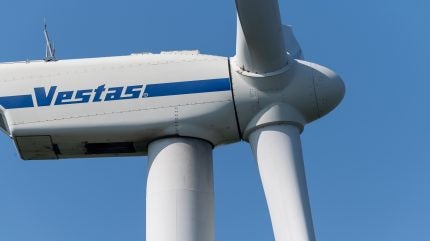Vestas and Fortum Settle Controversial Arbitration Over Russian Wind Projects
In a significant turn of events, Danish wind turbine manufacturer Vestas and the Nordic energy outfit Fortum have reached a settlement that resolves a long-standing arbitration dispute related to wind energy projects in Russia. This agreement marks a pivotal moment for both companies as they navigate the turbulent waters of energy politics in the wake of the ongoing conflict in Ukraine.
 Wind energy projects at the heart of the dispute between Vestas and Fortum.
Wind energy projects at the heart of the dispute between Vestas and Fortum.
The conflict traces back to agreements made before the onset of the Russian invasion of Ukraine in February 2022. According to reports, Fortum sought over $218 million in compensation after being forced to cancel various contracts due to sanctions that prohibited the delivery, installation, and servicing of turbines for four wind facilities operated by its Russian subsidiary, WEDF.
Vestas alleged that these cancellations were necessary to comply with the newly imposed sanctions, a matter that has seemed particularly contentious given the energy company’s leading position in the renewable sector. As discussions evolved, it became apparent that securing a settlement was paramount for both organizations. Vestas CEO Henrik Andersen emphasized this point, stating,
“Vestas and Fortum’s differences have been both significant and uncharacteristically public, but over time it became clear it’s in both parties’ interest to settle the dispute.”
The confidentiality surrounding the settlement terms indicates that both companies are keen to move forward without lingering grievances. For Fortum, the path ahead involves not only recuperating financial losses but also re-establishing collaboration with Vestas on current wind operations as well as future projects, which both executives have expressed optimism about.
The Context: Energy in a Time of Conflict
The backdrop of the Russian invasion has radically altered the landscape for international energy firms, challenging their commitments and forcing reevaluations of existing agreements. The settlement between Vestas and Fortum is reflective of broader industry trends, wherein energy companies must remain agile in the face of geopolitical hostilities.
As a stalwart in wind energy, Vestas maintains a critical role in Europe’s pursuit of renewable energy goals. Thus, this arbitration closure not only bodes well for the involved parties, but it also sends a reassuring message to stakeholders concerned about the stability of clean energy initiatives in the region.
Moreover, the reestablished ties may pave the way for innovative advancements in renewable technologies, potentially benefiting both companies and Europe’s energy system at large. Fortum’s CEO Markus Rauramo remarked on this sentiment, highlighting the mutual benefits of the agreement:
“I am pleased that we have reached an agreement that pleases both parties and which enables us to now move on and look at future prospects going forward.”
 Collaboration between energy companies is essential in today’s changing landscape.
Collaboration between energy companies is essential in today’s changing landscape.
The Future of Wind Energy Projects
Looking ahead, energy experts are cautiously optimistic that this resolution between Vestas and Fortum may serve as a blueprint for other companies grappling with similar circumstances. While the settlement is a positive development, it also prompts a broader contemplation of how international businesses will operate amidst significant geopolitical tensions.
The fortitude showcased by Vestas and Fortum is commendable; however, stakeholders in the energy market are now asking: how will this settlement impact future Projects? Will Vestas and Fortum expand their partnerships into new territories? The demand for renewable energy continues to surge, and the companies’ collaboration could yield substantial innovations in wind projects across Europe.
The complexities of energy geopolitics are far from over, yet this settlement provides a glimmer of hope for both companies. In joining forces, Vestas and Fortum demonstrate that collaboration, even in turbulent circumstances, can yield promising outcomes. This agreement serves as a testament to the resilience and adaptability expected of industry leaders maneuvering through uncharted waters.
In conclusion, as companies like Vestas and Fortum adapt and evolve, they set precedents that could influence the industry for years to come. With the rapid progression of renewable technologies, partnerships will likely shape the future of energy, anchoring the transition to sustainable systems that are not only necessary but inevitable.
Stay informed about the latest developments in the renewable energy sector and subscribe to EMA for ongoing updates.
 The landscape of renewable energy is rapidly changing.
The landscape of renewable energy is rapidly changing.













